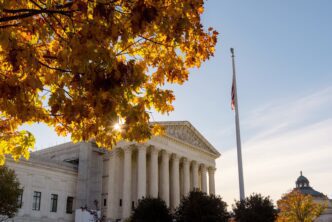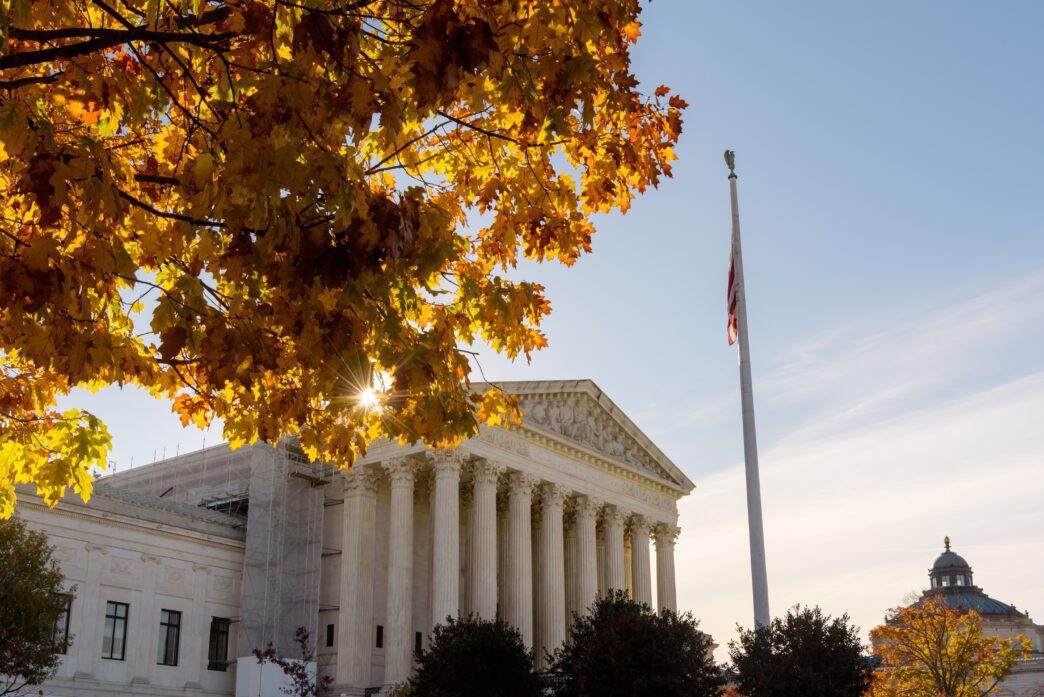Executive Summary
- The U.S. Supreme Court sharply questioned the legality of President Donald Trump’s tariffs, specifically his use of the 1977 International Emergency Economic Powers Act (IEEPA), with challengers arguing that tariff imposition is a power reserved for Congress.
- Justices, including conservatives, expressed skepticism about the broad scope of presidential power claimed under IEEPA, debating whether tariffs are essentially taxes, a power explicitly vested in Congress by the Constitution.
- The court’s decision, expected in the coming months, could have significant economic implications, potentially requiring the government to refund an estimated $90 billion in collected tariffs and clarifying the scope of executive authority in trade policy.
The Story So Far
- The Supreme Court case stems from challenges to President Donald Trump’s use of the 1977 International Emergency Economic Powers Act (IEEPA) to impose sweeping tariffs, which he justified by citing the U.S. trade deficit as an “extraordinary and unusual threat.” Challengers argue that IEEPA does not grant the President authority to impose tariffs, a power they contend is constitutionally reserved for Congress, thus igniting a fundamental debate over the separation of powers and the scope of executive authority during declared emergencies.
Why This Matters
- The Supreme Court’s scrutiny of President Trump’s tariffs under the International Emergency Economic Powers Act could significantly redefine the scope of presidential authority over trade policy, potentially limiting future executive power to impose duties without explicit congressional approval. A ruling against Trump could necessitate the refund of billions in collected tariffs, impacting businesses and government finances, and would require the current administration to find alternative legal bases for maintaining existing levies.
Who Thinks What?
- Challengers, including a coalition of small businesses and states, argue that President Trump’s use of the 1977 International Emergency Economic Powers Act (IEEPA) to impose tariffs is illegal because the power to levy tariffs rests solely with Congress, and IEEPA does not explicitly grant the president such authority.
- US Solicitor General John Sauer, representing the government, contends that “country-killing” crises necessitate emergency action and that the IEEPA grants the President broad powers to impose tariffs to address “ruinous economic and national security consequences,” viewing these tariffs as regulatory rather than primarily taxes.
- Several Supreme Court justices, including Chief Justice John Roberts and Justices Amy Coney Barrett, Neil Gorsuch, and Sonia Sotomayor, expressed skepticism about the broad scope of power claimed by the government, questioning whether the IEEPA allows a president to unilaterally impose tariffs, which they view as a taxing power explicitly vested in Congress.
The U.S. Supreme Court justices, including several conservatives, sharply questioned the legality of President Donald Trump’s sweeping tariffs during a nearly three-hour hearing on Wednesday. The high-stakes case, brought by a coalition of small businesses and states, challenges the administration’s use of the 1977 International Emergency Economic Powers Act (IEEPA) to impose duties, arguing that such power rests solely with Congress. The outcome could have significant implications for the global economy and potentially require the government to refund billions in collected tariffs.
Judicial Skepticism and Presidential Authority
Skepticism from justices, including Chief Justice John Roberts and Justices Amy Coney Barrett and Neil Gorsuch, focused on the broad scope of power claimed by the government. Justice Gorsuch questioned whether a ruling for Trump would allow Congress to abdicate its responsibility to regulate foreign commerce.
US Solicitor General John Sauer argued that “country-killing” crises necessitated emergency action, warning of “ruinous economic and national security consequences” if the tariff powers were deemed illegal. President Trump initially invoked IEEPA to tax goods from China, Mexico, and Canada due to drug trafficking, and later imposed levies on goods from almost every country, citing the U.S. trade deficit as an “extraordinary and unusual threat.”
Challengers, represented by Neil Katyal, contended that while IEEPA grants power to regulate trade, it does not mention tariffs. Katyal stated it was “implausible” that Congress intended to give the president authority to overhaul the entire tariff system and the American economy.
Tariffs as Taxes
A central point of contention was whether the tariffs constitute a tax, a power explicitly vested in Congress by the Constitution. While Sauer maintained the tariffs were regulatory with “only incidental” revenue, Justice Sonia Sotomayor asserted, “You want to say that tariffs are not taxes but that’s exactly what they are.”
Justice Brett Kavanaugh, however, questioned the logic of allowing a president to block trade entirely but not impose a small tariff. The justices spent little time on questions about refunds or the validity of the president’s emergency declarations, instead focusing on the text and history of IEEPA.
Potential Economic Impact
The court’s decision, expected in the coming months, will determine the fate of an estimated $90 billion in import taxes already paid. Wells Fargo analysts suggest this figure could escalate to $1 trillion if the court takes until June to rule.
Administration officials, including Press Secretary Karoline Leavett, indicated that the White House is preparing alternative legal authorities to maintain the tariffs should the Supreme Court rule against them. A ruling in Trump’s favor would overturn findings from three lower courts that previously ruled against the administration.
Outlook
The Supreme Court’s deliberations highlight a fundamental debate over the separation of powers in U.S. trade policy and the interpretation of presidential authority during declared emergencies. The ruling, anticipated to be a landmark decision, will not only clarify the scope of executive power but also dictate the financial future of numerous businesses and international trade relations.








